Natalie Sambhi is an analyst at the Australian Strategic Policy Institute focussing on Australia-Indonesia relations, and the editor of its blog The Strategist. Natalie’s research interests include political and security affairs in Indonesia and Southeast Asia.
Natalie will join CAUSINDY again in 2014, moderating this year’s panel discussion on defence and security.
Tell us a bit about your own background.
After graduating with degrees in Asian Studies and International Relations, I briefly worked at the Department of Defence and lived in Indonesia. Being passionate about defence, I founded my own blog Security Scholar in 2010 and started writing more about military and security issues.
I’ve now been an analyst at the Australian Strategic Policy Institute (ASPI) for two years where I focus on Australia-Indonesia relations. I’m also proud to be an editor of ASPI’s official blog, The Strategist.
How did you first get involved in the Australia-Indonesia relationship? Where do you see it headed?
My mum’s family is Indonesian so I had no choice but to get an early exposure to Australia-Indonesia relations! I’ve been lucky to be able to see Australia and it’s attitude to the region through my family’s eyes. But my professional interest in the relationship has grown the more I see how important the relationship is to Australia’s place in the world. Since 2009, I’ve increasingly focussed on the country, particularly on Indonesian military and defence issues.
I’m optimistic about the relationship, despite the ups and downs. Over the course of my lifetime, I’ve seen Australian attitudes gradually become warmer and more receptive towards Indonesia, especially in the political realm, so I think the relationship will remain on a steady upwards trajectory in the long run. I hope Indonesian popular culture, including films like ‘The Raid’ continue to show Australians that Indonesia is more than Bali. That same goes in reverse, it’s up to us to show Australia in a different light to our neighbours.
I believe the more the paths of Australians and Indonesians criss-cross, the more we’ll have to learn about each other–including from our mistakes.
What are you working on at the moment?
As an analyst at ASPI, I’m always thinking and writing about Australia-Indonesia defence and strategic relations.
However, I’m currently in Washington DC as a visiting fellow by the Center for a New American Security (CNAS), where I’ve been looking at the US rebalance to the Asia Pacific and American expectations of Indonesia’s role as a regional power and global actor.
It’s been interesting to compare Australian and American perspectives on Indonesia: it occupies such a prominent part of our regional strategic thinking, but for the US, Indonesia is seen only as one of ten ASEAN states and even then, only part of a much larger Asia Pacific region.
How did CAUSINDY change your perspective on the Australia-Indonesia relationship?
Being so absorbed by the defence and strategic issues, it was really refreshing to see the bilateral relationship from both Australian and Indonesian private sector and NGO perspectives. It’s made me think harder about how my research supports the relationship more broadly. Being with such a diverse group of people, I was able to find more creative ways to articulate defence and strategic issues to a wider audience.
What advice would you share with anyone thinking of applying this year?
For 2014 applicants, I would say, let your passion for the relationship show and be prepared to come up with practical, grassroots solutions to building better ties.
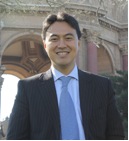 With great pleasure CAUSINDY welcomes Fauzi Ichsan, managing director, senior economist and head of government relations at Standard Chartered Bank in Jakarta to speak on the Economics and Trade panel session.
With great pleasure CAUSINDY welcomes Fauzi Ichsan, managing director, senior economist and head of government relations at Standard Chartered Bank in Jakarta to speak on the Economics and Trade panel session. Today, we’re excited to announce that Michael Bachelard, Indonesia Correspondent for Fairfax Media, will join this year’s panel on
Today, we’re excited to announce that Michael Bachelard, Indonesia Correspondent for Fairfax Media, will join this year’s panel on  Alison holds a Masters degree in Human Rights Law and Policy from the University of NSW and a Journalism degree from the University of Technology Sydney. She was an AusAID Australian Youth Ambassador for Development based in Jakarta, where she worked for a local NGO and World Vision Indonesia.
Alison holds a Masters degree in Human Rights Law and Policy from the University of NSW and a Journalism degree from the University of Technology Sydney. She was an AusAID Australian Youth Ambassador for Development based in Jakarta, where she worked for a local NGO and World Vision Indonesia.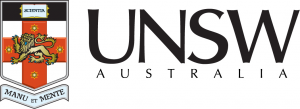 CAUSINDY welcomes another supporter this week with
CAUSINDY welcomes another supporter this week with  The CAUSINDY team is excited to announce that Professor Tim Lindsey will be returning to CAUSINDY in 2014, joining our special Q&A event, ‘
The CAUSINDY team is excited to announce that Professor Tim Lindsey will be returning to CAUSINDY in 2014, joining our special Q&A event, ‘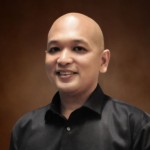 Yose Rizal, the founder of
Yose Rizal, the founder of 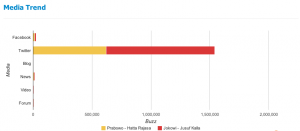

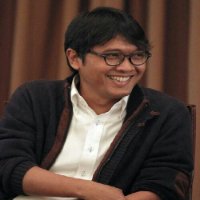 It is CAUSINDY’s pleasure to announce that Bapak Arif Zulkifli, Chief Editor of
It is CAUSINDY’s pleasure to announce that Bapak Arif Zulkifli, Chief Editor of